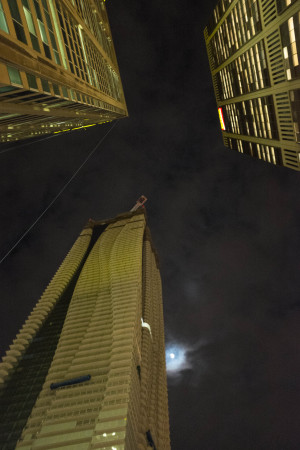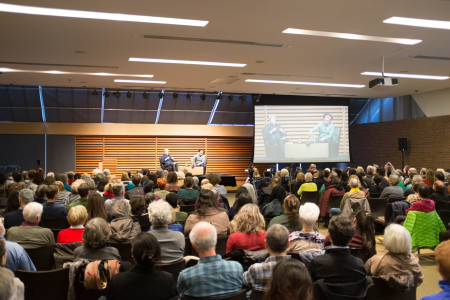Land acknowledgements — in which people recognize the traditional territory of indigenous peoples on which they are assembled — are an important part of decolonization and indigenous reconciliation. This year, I included one in my handout for tutorial students.
There is not, however, a definitive recognition for downtown Toronto or the U of T area. I have head a wide variety of indigenous peoples recognized, most commonly the Anishinaabe, Haudenosaunee, and Wendat peoples, but often others as well, and sometimes with one or more of those excluded.
For the divestment Community Response, we used the Ryerson University land acknowledgement.
Recently, Massey College and the School of Public Policy hosted the Walter Gordon Symposium on the theme of responding to Canada’s Truth and Reconciliation Commission. The program for the conference included a land acknowledgement which is probably as well-researched and historically justified as any that is available for this area:
I would like to acknowledge this sacred land on which the University of Toronto operates. It has been a site of human activity for 15,000 years. This land is the territory of the Huron-Wendat and Petun First Nations, the Seneca, and most recently, the Mississaugas of the Credit River. The territory was the subject of the Dish With One Spoon Wampum Belt Covenant, an agreement between the Iroquois Confederacy and Confederacy of the Ojibwe and allied nations to peaceably share and care for the resources around the Great Lakes.
Today, the meeting place of Toronto is still the home to many Indigenous people from across Turtle Island and we are grateful to have the opportunity to work in the community, on this territory.
This acknowledgement can be found on a U of T libraries page about the indigenous history of Toronto. It notes that it was: “Revised by the Elders Circle (Council of Aboriginal Initiatives) on November 6, 2014”.
For my PhD research, the challenge of identifying which indigenous peoples have traditionally occupied any piece of territory from Texas to Oklahoma, to Kansas, to Nebraska, to South Dakota, to North Dakota, to Montana, to Saskatchewan, to Alberta to British Columbia is considerable. So too, the challenge of identifying any indigenous governance bodies that regulate academic research, and what sort of approval process each requires.






